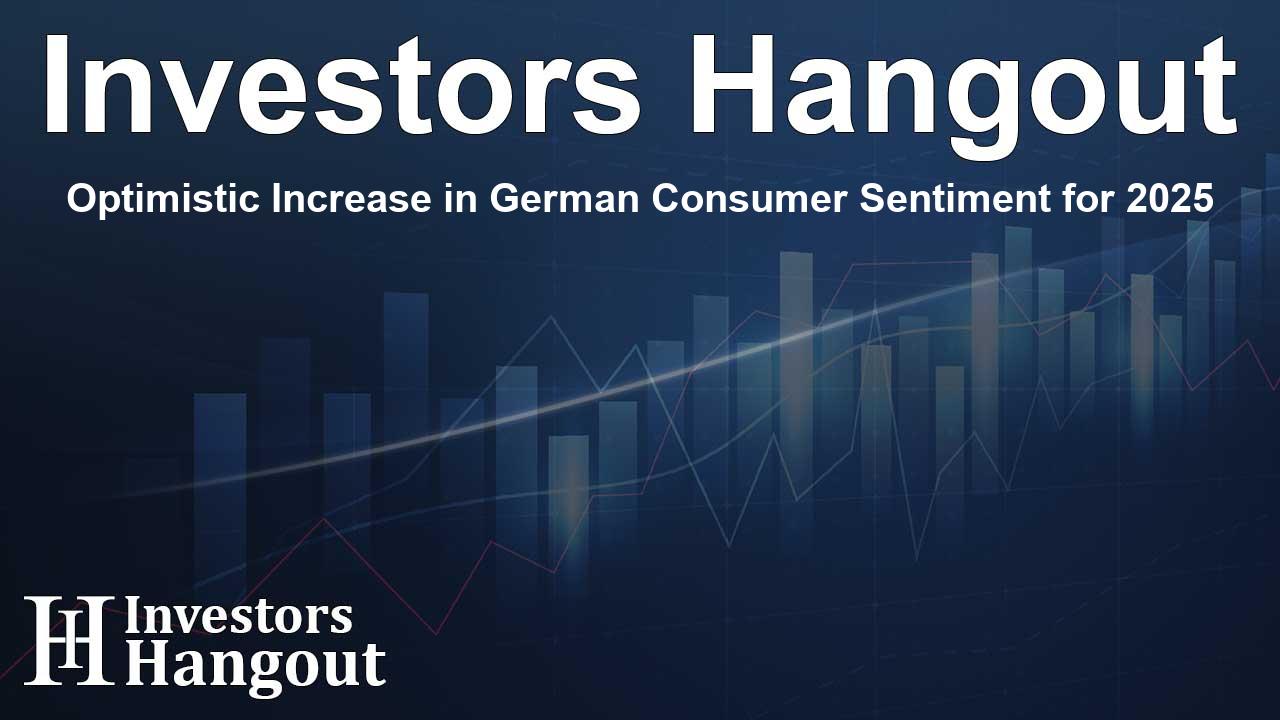Optimistic Increase in German Consumer Sentiment for 2025

Rising Consumer Sentiment in Germany Amidst Challenges
Recent data shows a slight uptick in German consumer sentiment as the country navigates economic uncertainties. While the overall outlook remains low, there are signs of cautious optimism ahead of the new year. This shift is captured in a consumer sentiment index developed by GfK and the Nuremberg Institute for Market Decisions, which reflects the nuanced feelings of households facing financial pressures.
Understanding the Consumer Sentiment Index
The consumer sentiment index, which is pivotal for gauging economic health, has moved from -23.1 points to -21.3 points, coming closer to the expectations set by economic analysts. This improvement, albeit modest, indicates a desire for stability among consumers. A reading below zero, such as -21.3, still denotes challenges ahead but reveals a slight rebound in confidence.
Key Factors Influencing Consumer Outlook
Despite the rise in the index, the sentiment remains dampened by persistent high food and energy prices. For many households, these economic challenges weigh heavily on their purchasing decisions. The ongoing concern over job security, particularly as companies like Volkswagen implement cost-cutting measures, further complicates the economic landscape. NIM analyst Rolf Buerkl emphasizes that consumer confidence cannot flourish amidst such uncertainties.
Components of the Consumer Climate Indicator
The GfK survey sheds light on different aspects of consumer sentiment, such as the willingness to buy, which now sits at -5.4, reflecting hesitance among households to invest in larger purchases. Additionally, income expectations have improved slightly to 1.4, but this remains below ideal levels, indicating that consumers are still cautious regarding their financial futures. The business cycle expectations index, which assesses respondents' views of the broader economic situation, also remains tepid.
The Economic Context and Future Predictions
Germany's consumer sentiment is underpinned by a broader economic context that includes potential political shifts, such as a snap election anticipated in February. These events contribute to a landscape where uncertainty looms over future economic growth. Experts suggest that the economy might experience a second consecutive year of contraction in the forthcoming year, lagging behind its euro zone counterparts.
What Lies Ahead for German Consumers?
As we look towards the upcoming year, several questions persist regarding the sustainability of this boost in consumer sentiment. Will the index continue to improve, or will external factors hinder progress? Additionally, the forecast from GfK indicates that private consumption could see variations based on future indicator shifts. A one-point change in the index corresponds directly to a change in private consumption trends, highlighting the significance of consistently monitoring consumer sentiment.
The Importance of Consumer Confidence
Consumer confidence is a crucial driver of economic activity, influencing spending patterns. As households weigh their buying options, the overall economic atmosphere remains fragile. The sentiment indicators hint at a delicate balance between cautious optimism and the looming fears of economic instability.
Frequently Asked Questions
What is the current consumer sentiment index in Germany?
The current consumer sentiment index in Germany stands at -21.3 points.
What factors are affecting consumer sentiment?
High food and energy prices, along with growing job insecurity, are major factors impacting consumer sentiment.
How is the consumer sentiment indicator calculated?
The consumer sentiment indicator forecasts private consumption and reflects responses about willingness to buy and income expectations.
What does a negative consumer sentiment index signify?
A negative consumer sentiment index indicates a drop in consumer confidence compared to the previous year.
How might upcoming political events affect the economy?
The anticipated snap elections could contribute to economic uncertainty, influencing consumer choices and spending patterns.
About The Author
Contact Evelyn Baker privately here. Or send an email with ATTN: Evelyn Baker as the subject to contact@investorshangout.com.
About Investors Hangout
Investors Hangout is a leading online stock forum for financial discussion and learning, offering a wide range of free tools and resources. It draws in traders of all levels, who exchange market knowledge, investigate trading tactics, and keep an eye on industry developments in real time. Featuring financial articles, stock message boards, quotes, charts, company profiles, and live news updates. Through cooperative learning and a wealth of informational resources, it helps users from novices creating their first portfolios to experts honing their techniques. Join Investors Hangout today: https://investorshangout.com/
The content of this article is based on factual, publicly available information and does not represent legal, financial, or investment advice. Investors Hangout does not offer financial advice, and the author is not a licensed financial advisor. Consult a qualified advisor before making any financial or investment decisions based on this article. This article should not be considered advice to purchase, sell, or hold any securities or other investments. If any of the material provided here is inaccurate, please contact us for corrections.
